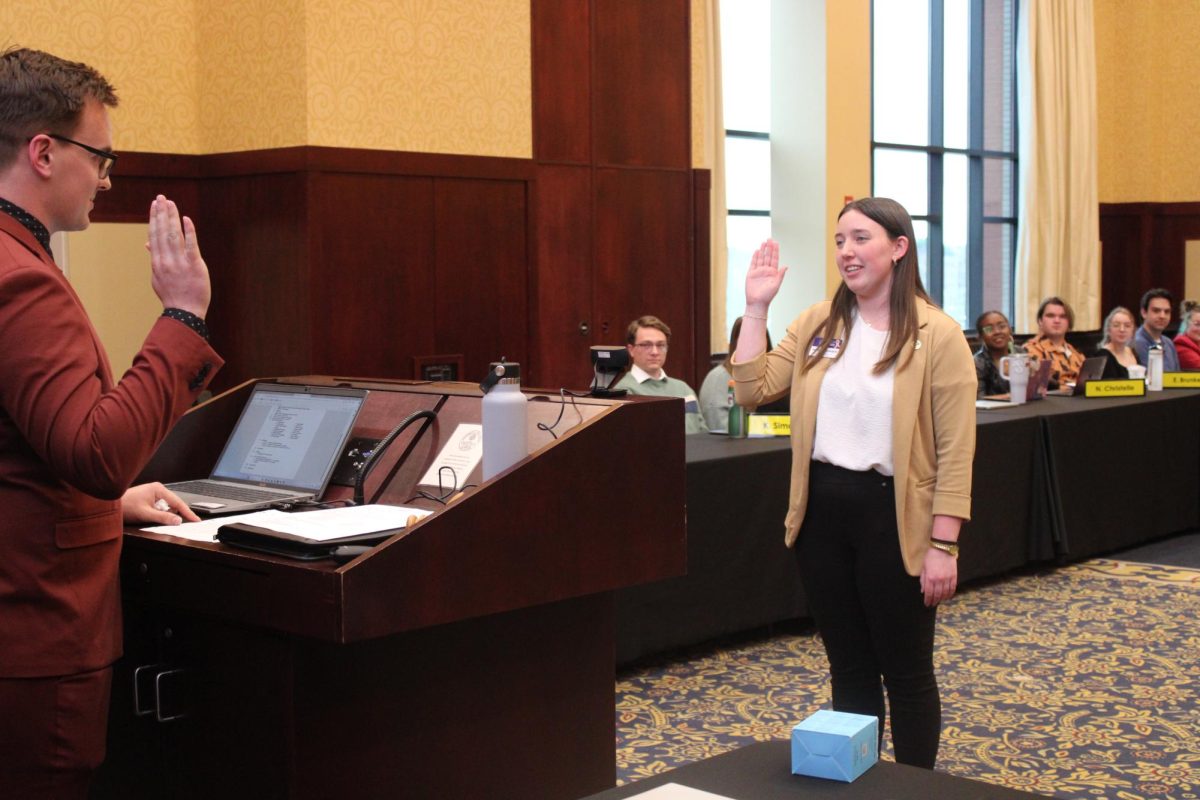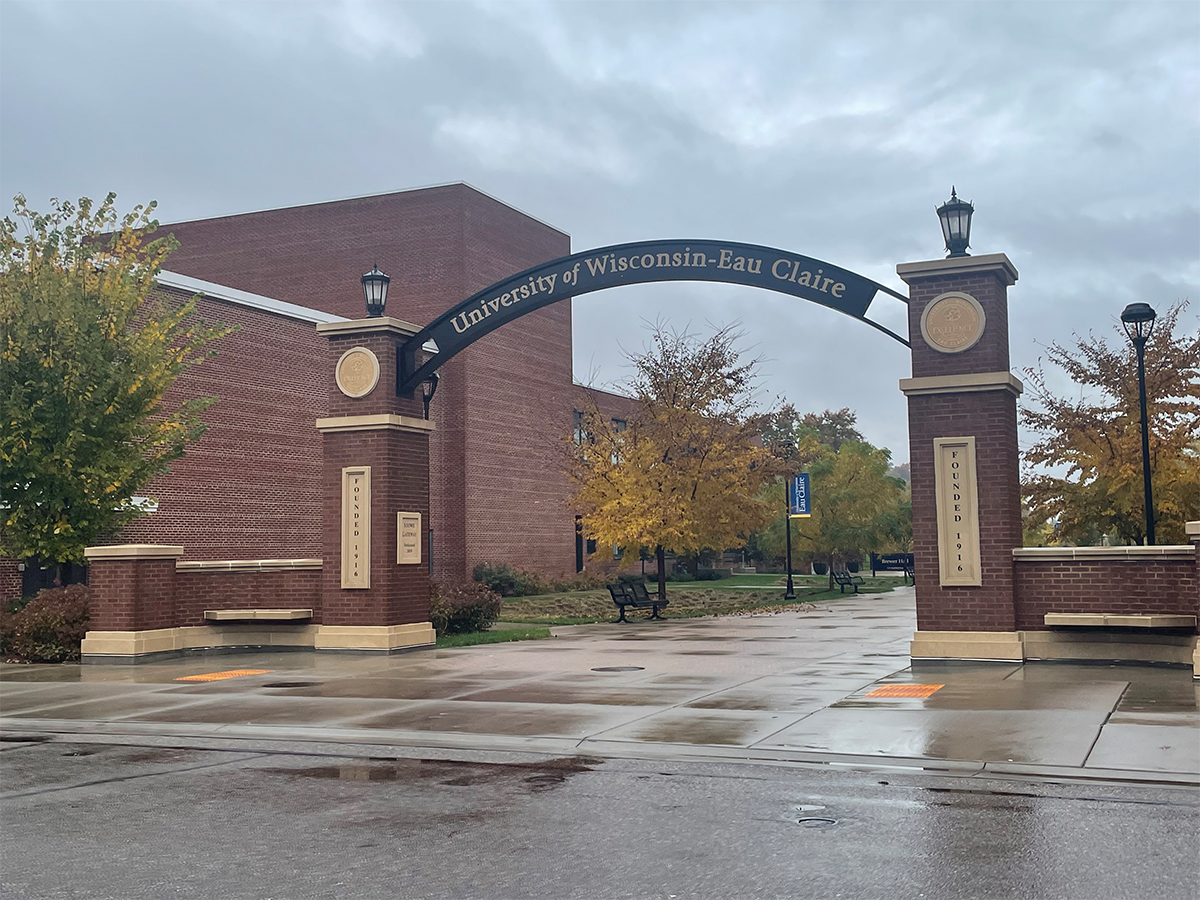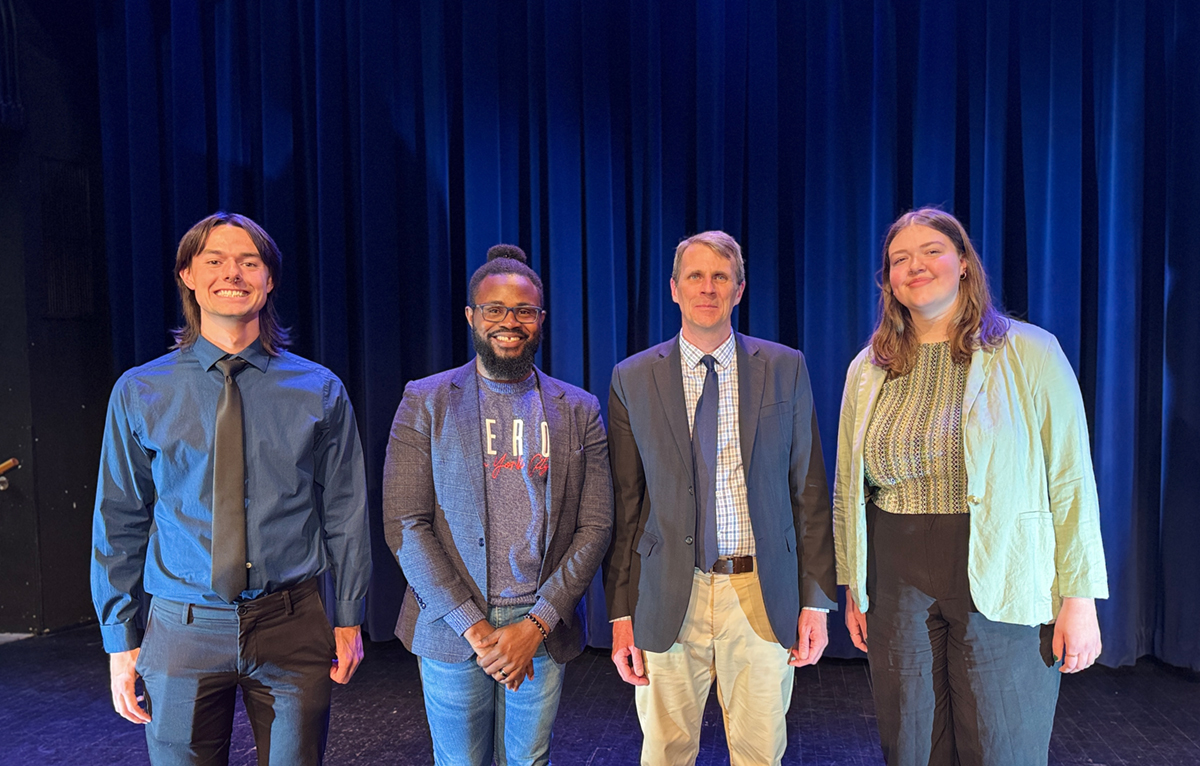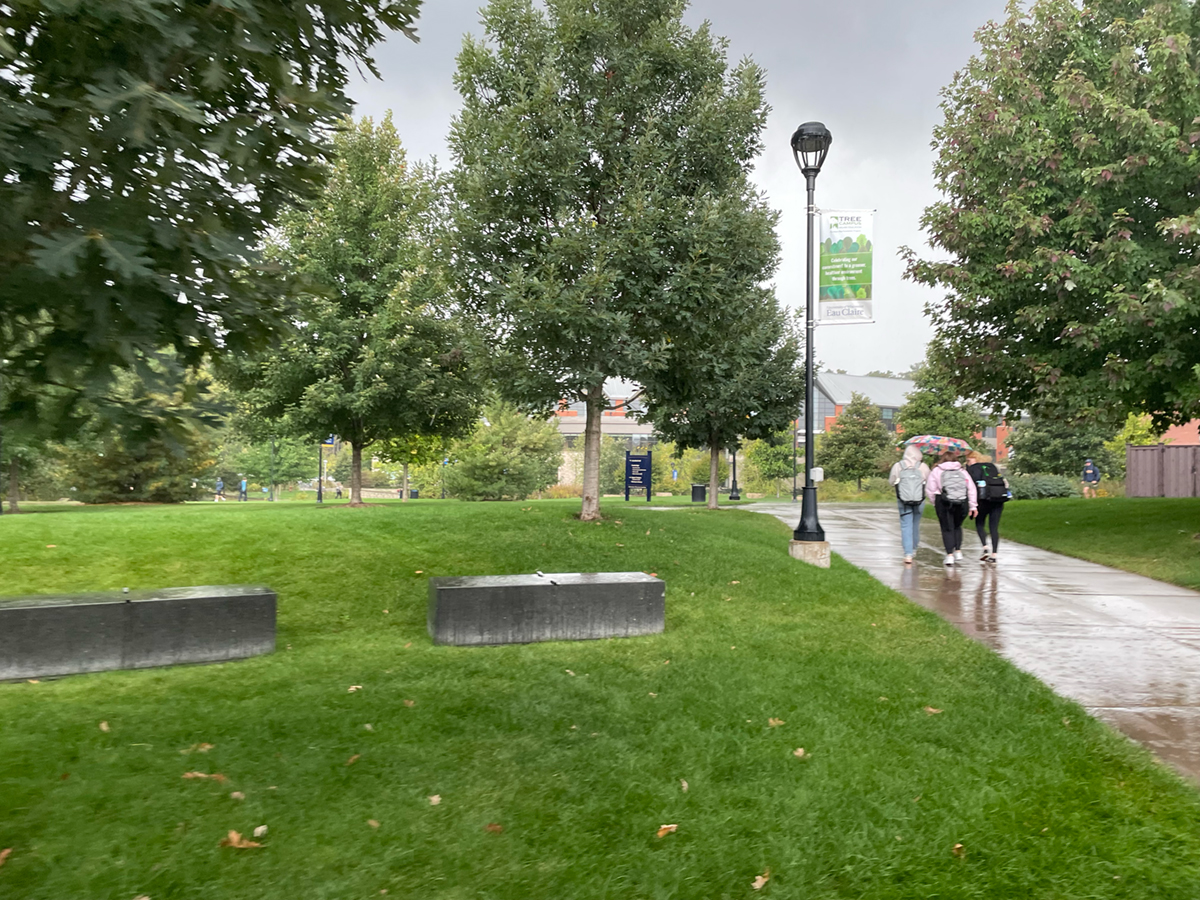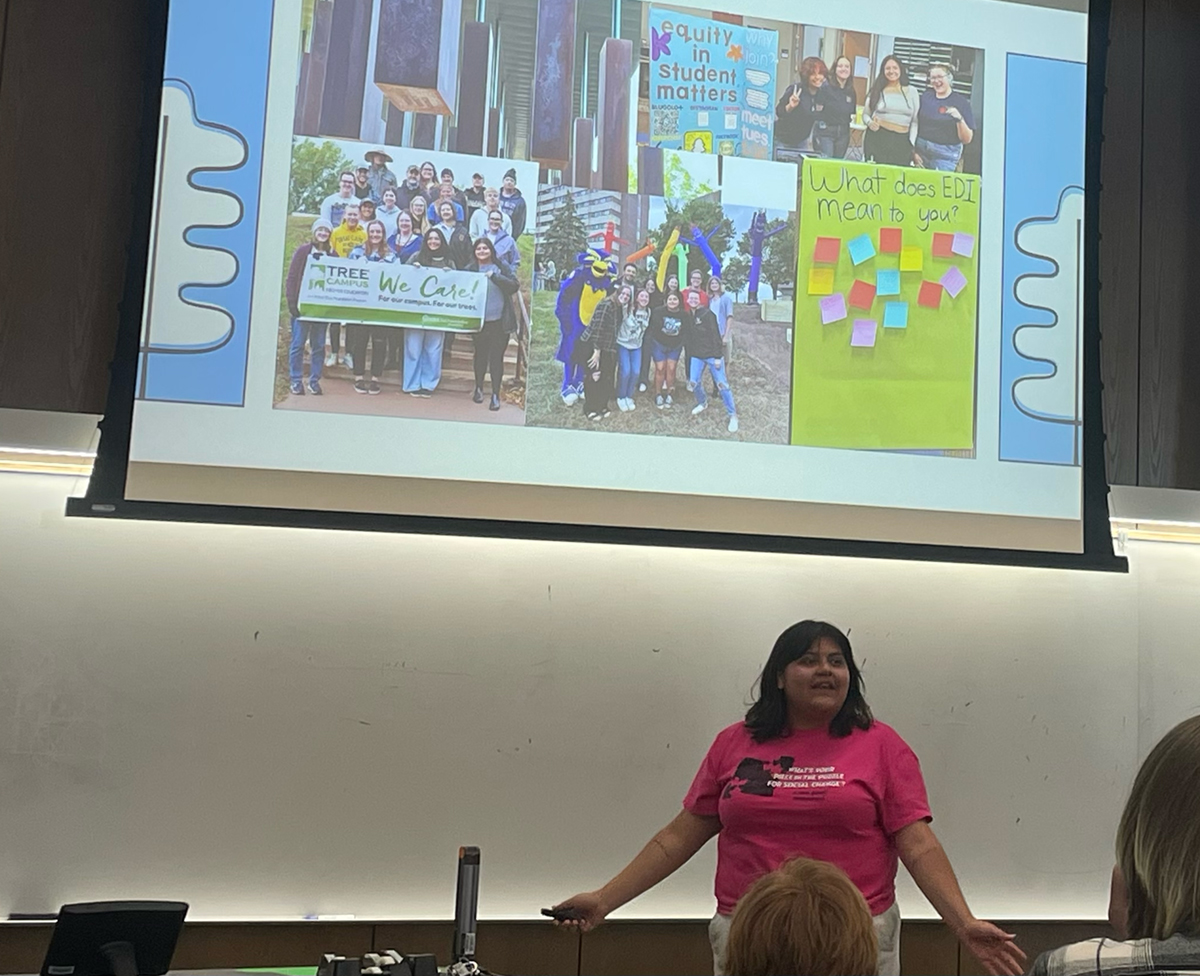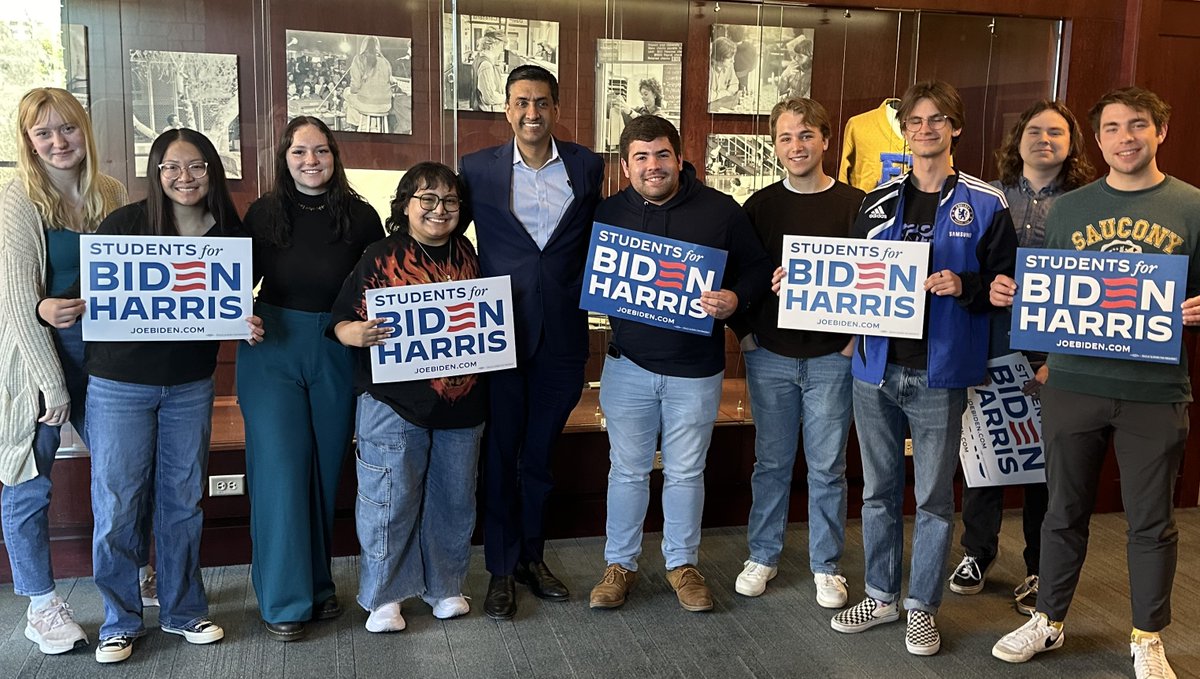 Molly Tumanic
Molly TumanicImagine traveling through the jungle for many days and nights with little food for you and your family. Looking for refuge, you live in camps in Thailand and can only leave your dwelling at night.
These are some of the struggles of the Hmong people who were forced to flee Laos due to war. These experiences were shared in the play, “The Living Paj Ntaub: Journeys from Laos to Eau Claire,” one of the main events at Saturday’s 16th annual Hmong Student Association’s Hmong Cultural Festival, held in the Council Fire Room, Davies Center.
A paj ntaub is a story cloth. The play explained how women in refugee camps in Thailand fleeing Laos would sew the stories of their lives onto cloth, comparable to quilts, and sell them to get food.
The play was developed from interviews with Hmong people in the Eau Claire area, conducted by UW-Eau Claire student researchers.
Sophomore Hmong student Chuo Lee, along with his sister Yer Lee, a senior at Eau Claire Memorial High School, performed the play.
The production told the story of the struggles of the Hmong people and their journey to the United States from the youths’ point of view.
Although Chuo and Yer Lee said they did not experience the struggles themselves, their parents and grandparents did.
“The thing I want the community to take away from this is who we are and why we are here,” Chuo Lee said.
Yer Lee agreed.
“You never hear anything on Hmong history,” she said.
Students and community members had the opportunity to learn more about Hmong history at the event, which involved celebrating Hmong culture and emphasized transitions of Hmong culture in the United States.
There were several speakers, including guest speaker Jane Hamilton-Merritt, an author and Nobel Peace Prize nominee for her Hmong history research.
Chuo Lee said although the university has information on Hmong history, it could do a better job of informing students.
About 150 Hmong students attend Eau Claire, said Mary Lee, president of the Hmong Student Association. That makes the Hmong the largest minority group on campus, she said.
The play also emphasized strong family ties found in Hmong culture.
There is a large Hmong population in Eau Claire, Chuo Lee said. About half of his family lives in the Eau Claire area, he added.
“Everyone works as a unit,” Mary Lee said. “The Hmong are not an individualistic culture, and we work together.”
According to U.S. census data, there were 2,259 Asians living in Eau Claire in 2000. The U.S. Census Bureau does not have specific data for the city’s Hmong population. The number of Asians, Eau Claire’s largest minority group, was about twice the number of the second-largest minority group, Hispanics or Latinos. In 2000, there were 790 members of that group in Eau Claire.
Other events throughout the day included sampling traditional Hmong food and workshops on topics that included Hmong needlework and religion.
Mary Lee said the Hmong Student Association hopes whoever came to the conference will have a better understanding of the Hmong culture and can build on that knowledge.
As part of the Women’s History Month activities, Mai Neng Moua, editor of the first Hmong American anthology, will make two presentations. She will speak at 1:30 and 6:30 p.m. Thursday in Davies Center.
Also as part of Women’s History Month activities, alternative rock and folk singer Magdalen Hsu-Li, an Asian-American artist and musician, will perform Wednesday at 6:30 p.m. in Schofield Auditorium. A lecture titled “Asian-American Women in the Arts” will follow.

